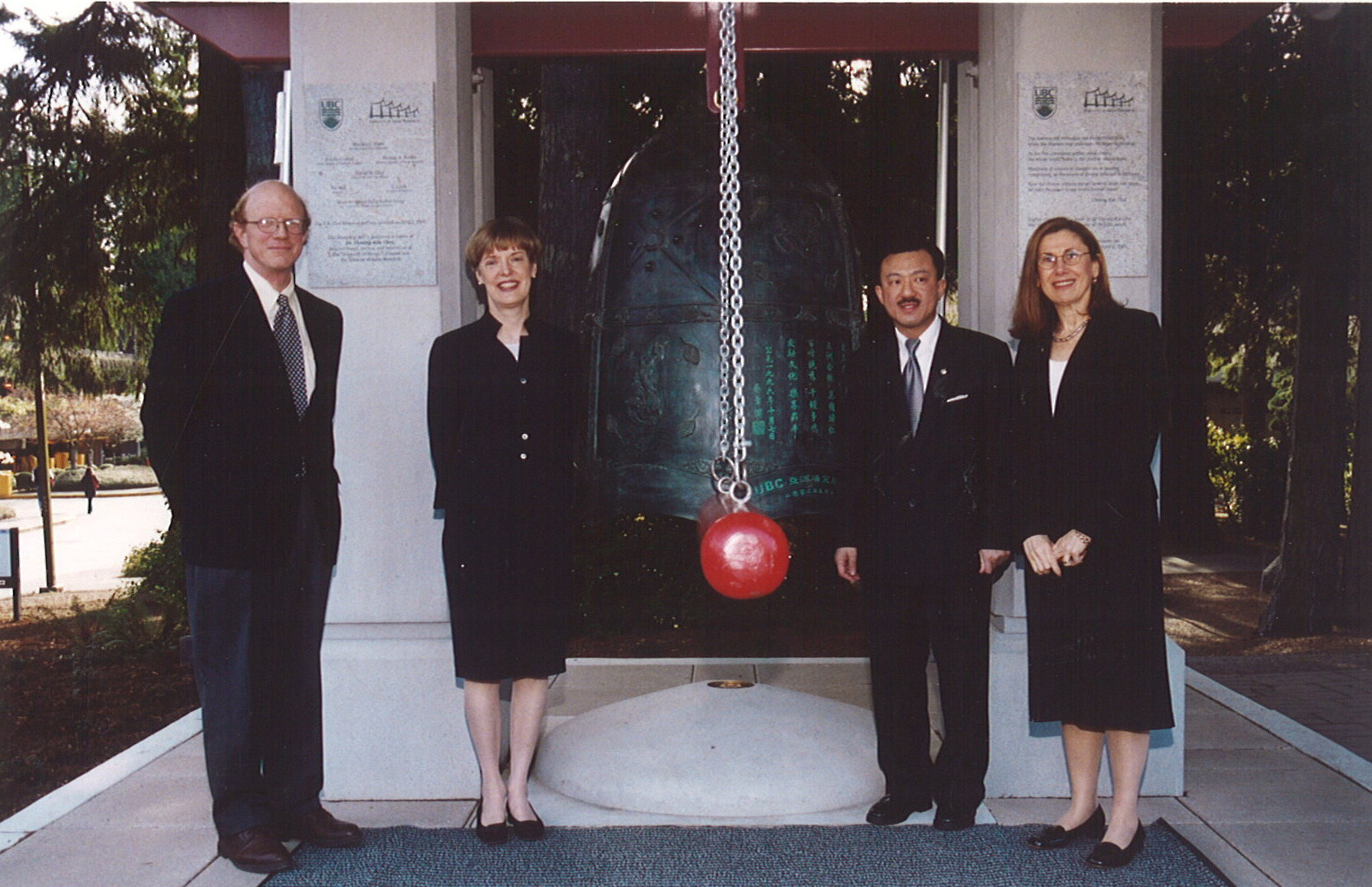
Inaugurating the Choi Memorial Bell in 2003, L to R: Pitman Potter, Martha Piper, David Choi, and Frieda Granot.
The Institute for Asian Research (IAR) was founded in 1978 as a focal point for Asia-related activities on the University of British Columbia’s Vancouver campus. Following in the spirit of the Institute of Pacific Relations (IPR), which was founded in the United States in 1925 to discuss relations among Pacific Rim nations, the IAR even inherited the IPR’s flagship publication, Pacific Affairs. Today, the IAR is an internationally respected hub for research, teaching, policy support and community engagement on Asia.
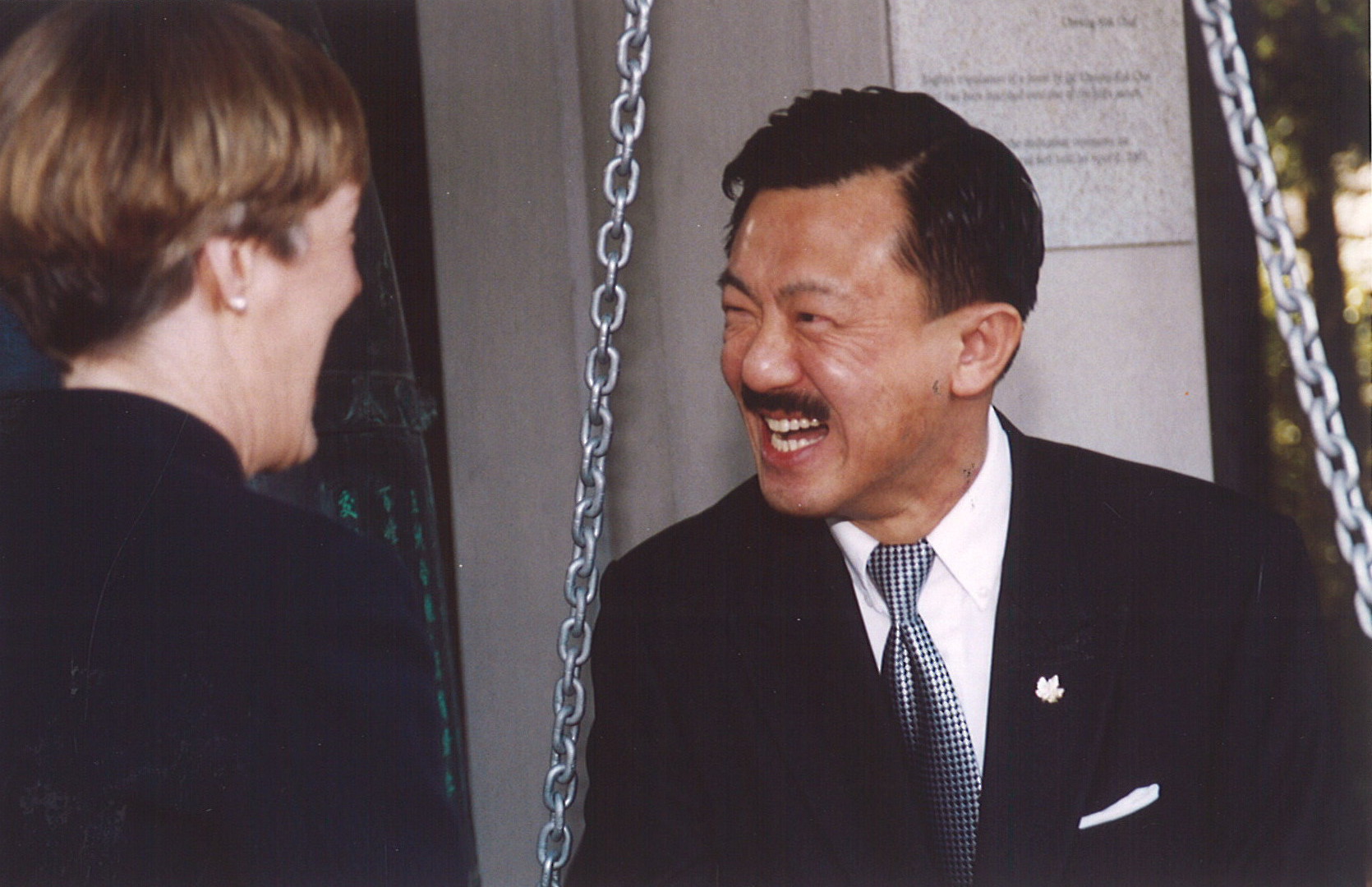
Martha Piper (Ex-UBC President) and David Choi at the Inauguration of the Choi Memorial Bell
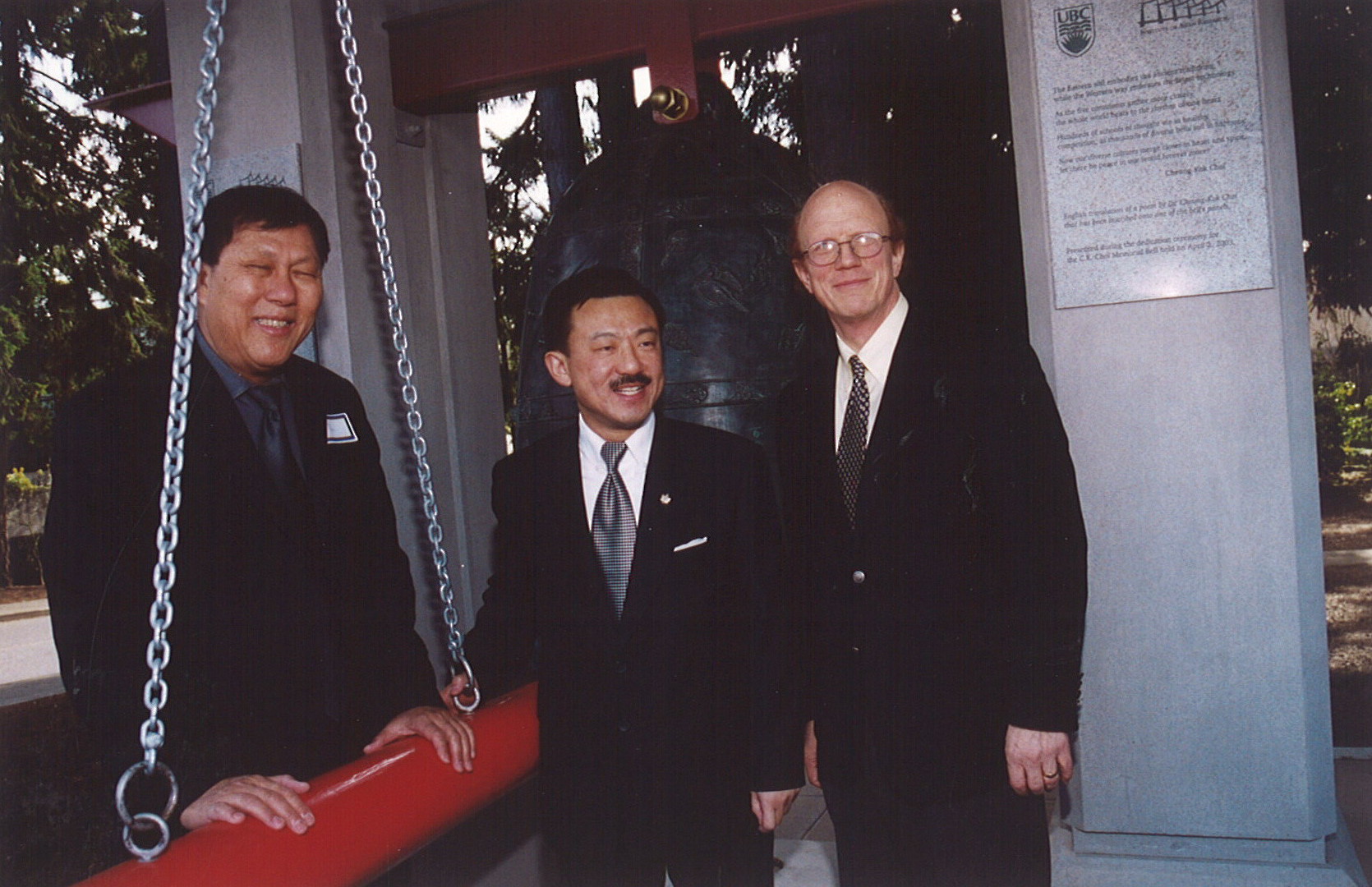
Unveiling the Choi Memorial Bell
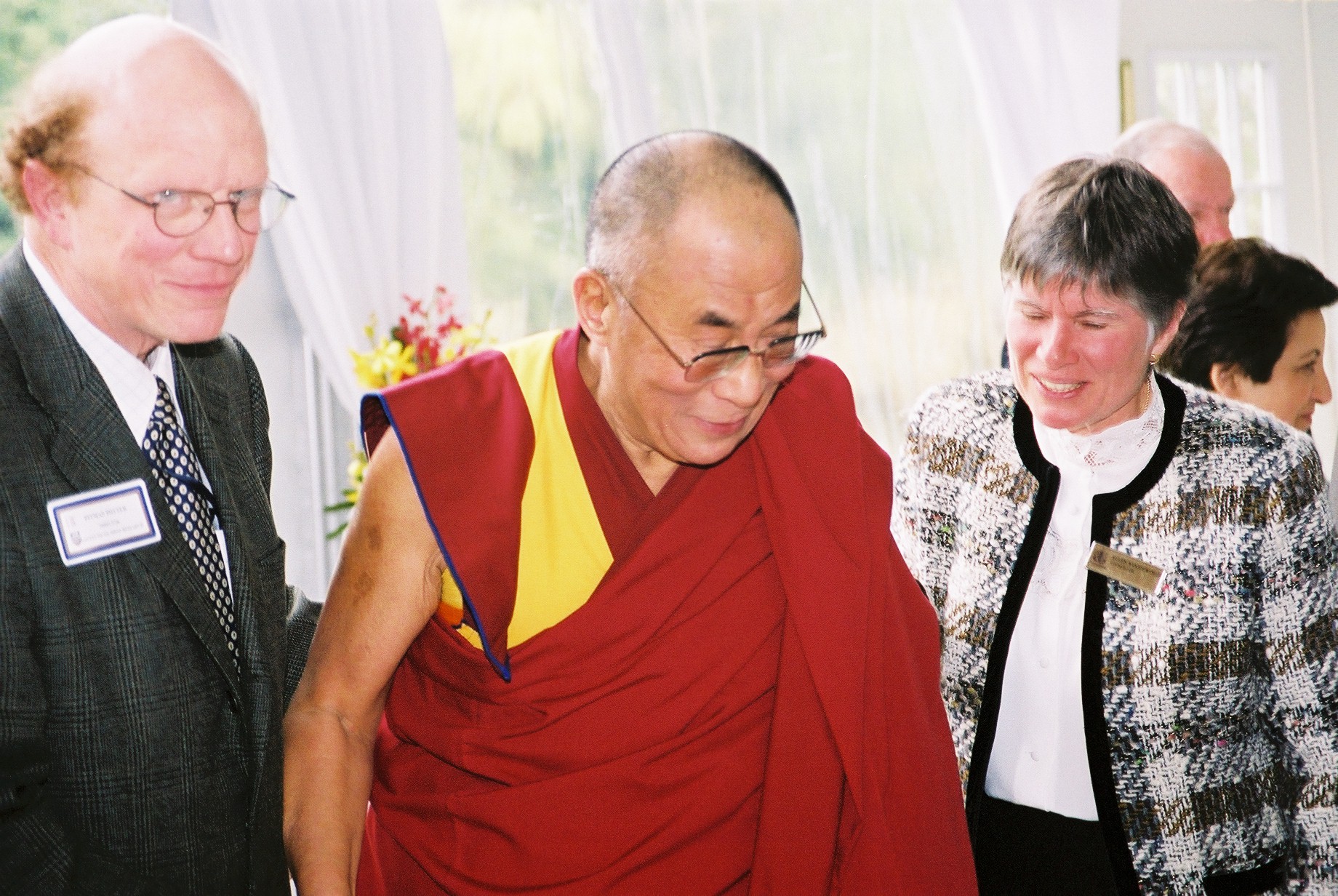
Pitman Potter (then IAR Director) escorts the Dalai Lama during his UBC visit, 2004.
Let’s take a closer look at the Institute’s evolution over the past four decades:
| Year | Event |
|---|---|
| 1970 | UBC establishes the Institute of Asian and Slavonic Research to accommodate the growing number of faculty who are studying Asia and the Far East. |
| 1977 | The Chapman Committee under the Dean of Graduate Studies and the Winter Committee under the Dean of Arts agree to create an institute that deals exclusively with Asia. An interim council is created to manage the new Institute of Asian Research (IAR) and the first IAR Newsletter is issued to all those with a substantial research interest in Asia. |
| 1978 | The IAR becomes fully operational on September 1. |
| 1978‑1979 | The IAR welcomes a number of visiting scholars, hosts seminars and workshops, and organizes meetings where graduate students can discuss challenges and share information concerning Asian research. |
| 1981 | The IAR moves to six offices in the Asian Centre, which it shares with the Asian Library and the Department of Asian Studies. |
| The Institute is now coordinating and sponsoring interdisciplinary research, presenting lectures and seminars, organizing international conferences, hosting Asian visitors, administering the Pacific Affairs journal, publishing Asia Pacific Report, managing the Asian Centre and welcoming community cultural events. | |
| 1989‑1995 | The IAR raises more than $20 million in endowments and grants through the University’s World of Opportunity Campaign—donations that are doubled by the Government of British Columbia and the University Matching Funds Program. |
| This new funding enables the IAR to appoint endowed chairs, provide graduate fellowships, sponsor faculty and student exchanges, acquire library materials and move into its own building. | |
| 1991 | The Centres for China, Japan, Korea, India and South Asia, and Southeast Asia are created within the IAR. |
| 1993 | Chairs and executive committees for the five Centres are elected. |
| 1995 | The IAR has $5 million in endowments, 285 affiliates on and off campus, 30 visiting scholars and research associates, and more than $680,000 in research grants, contracts and awards. |
| 1996 | The IAR moves into its new home, the C. K. Choi Building, in February. The building is officially inaugurated on October 7, 1996. |
| 1998 | The Shandong Stones are installed next to the C. K. Choi Building, representing five foundational values of Confucianism — Ren (benevolence), Yi (righteousness), Li (propriety, rites), Zhi (wisdom), and Xin (trustworthiness). |
| 2000 | The IAR launches the Master of Arts in Asia Pacific Policy Studies (MAAPPS), the first graduate program in Canada to focus on contemporary policy issues in Asia. |
| 2003 | IAR hosts Tibetan Gyuto Monks as Artists in Residence between in April 2003, during their visit to UBC. The monks also met with First Nations communities, held classes for UBC students, and performed at the Chan Centre. |
| 2003 | The Choi Memorial Bell is inaugurated in tandem with an event honoring the life and legacy of benefactor Cheung-Kok Choi (1913-2003) whose generous support helped fund the C.K. Choi Building. |
| 2004 | His Holiness the Dalai Lama visits Vancouver at the invitation of the IAR, in collaboration with the Tibetan Cultural Society of BC, the Westcoast Sacred Arts Society, the Vancouver Symphony Orchestra, Simon Fraser University and a coalition of local dharma centres. The Tibetan Studies program is launched during this visit. |
| 2011 | The IAR celebrates the 150th birthday of poet and Nobel Laureate Rabindranath Tagore. UBC awards an honorary degree to economist, philosopher and Nobel Laureate Amartya Sen. |
| 2015 | The IAR helps launch UBC’s new Master of Public Policy and Global Affairs (MPPGA), a two-year professional degree program in global public policy. |
| 2017 | As a founding partner, the IAR launched the School of Public Policy and Global Affairs (SPPGA) at UBC. |
| 2021 | The IAR Fellows Program is launched and welcomes a cohort of 55 graduate students from a wide range of UBC Departments. |
| 2023 | IAR hosts Tunku Zain Al‘Abidin—Malaysian public intellectual and royal—for a talk on Malaysian Politics in September 2023. |
| 2025 | IAR holds two executive training courses on the Indo-Pacific Strategy for officials from Global Affairs Canada (GAC). |
| IAR organizes UBC’s first Indo-Pacific Symposium, bringing together academics, scholars, and policy experts to explore challenges in the region. |
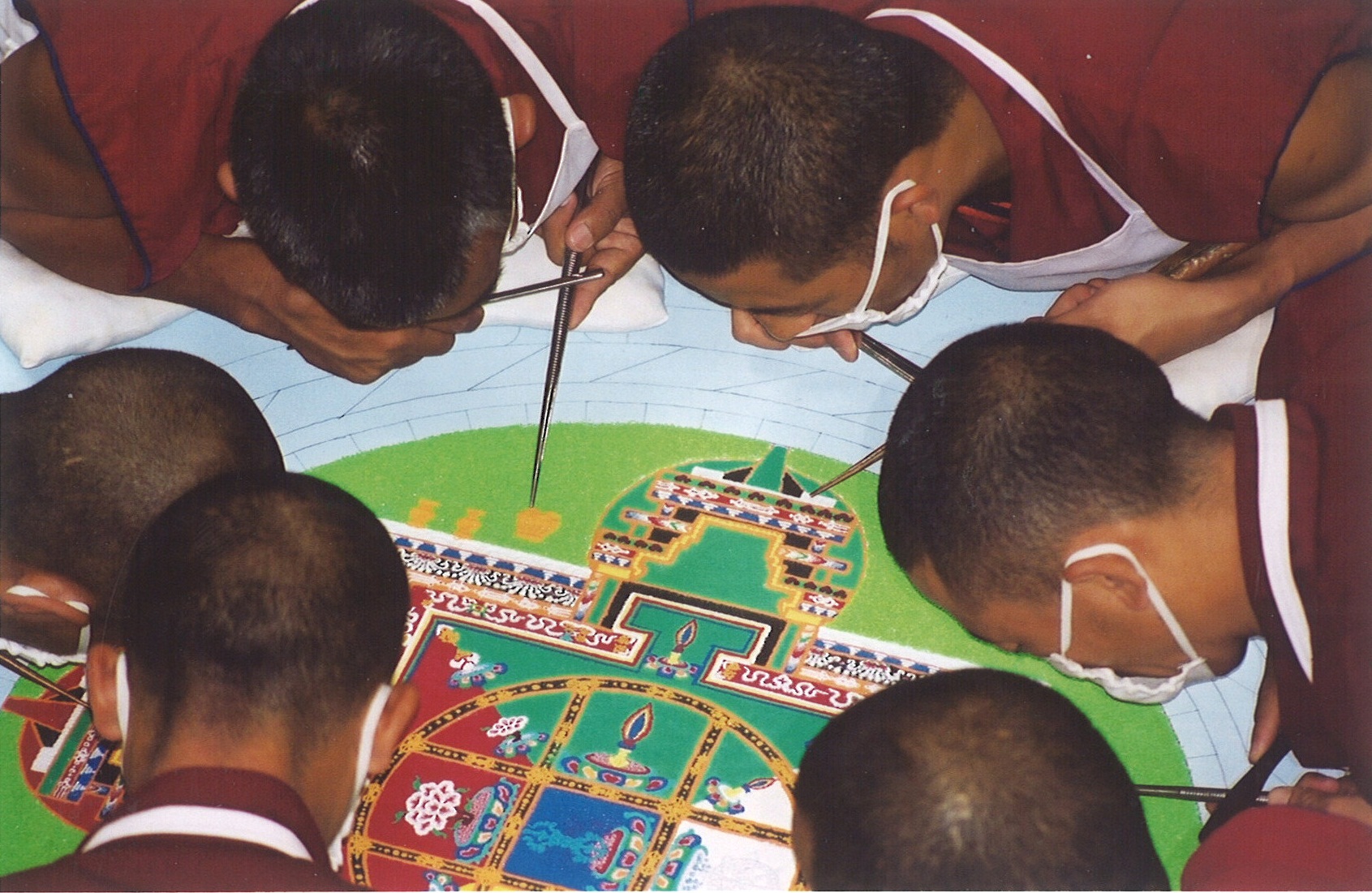
Tibetan Gyuto Monks creating a Sand Mandala in the C. K. Choi Building during their time as Artists in Residence
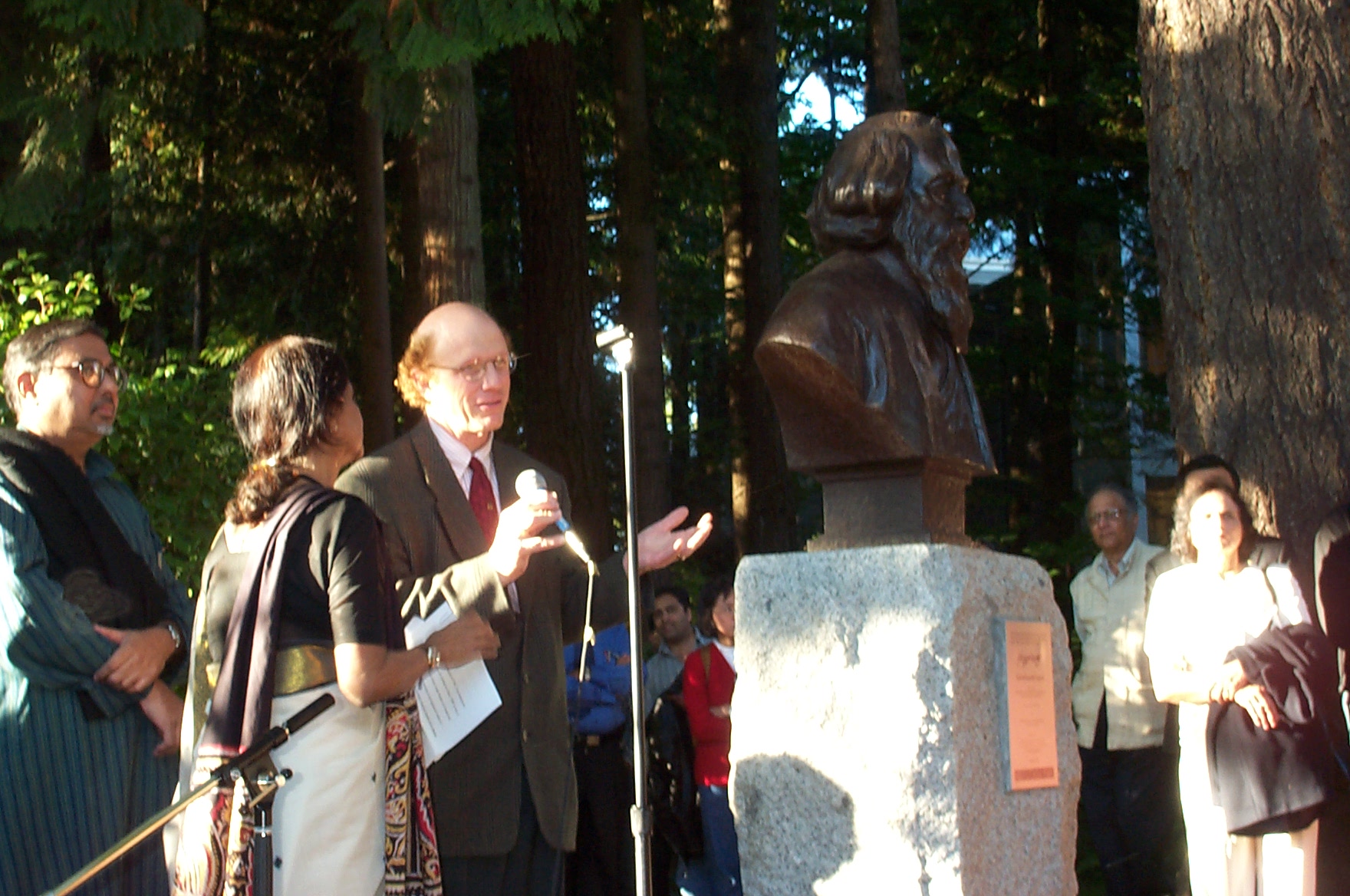
Pitman Potter (Past IAR Director) at the unveiling of the statue of Rabindranath Tagore
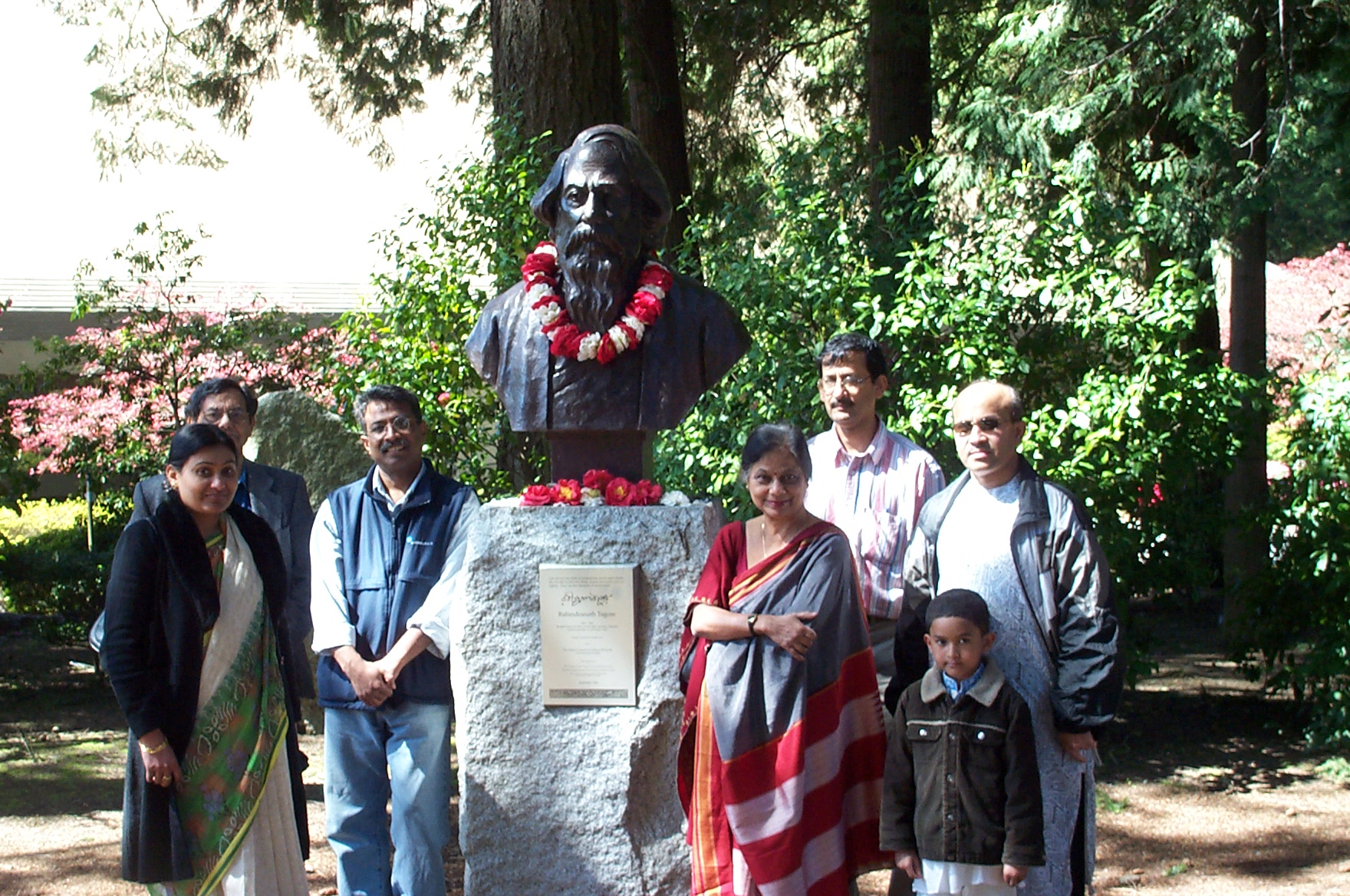
Past CISAR Director Dr. Mandakranta Bose (Centre Right) at the inauguration of Rabindranath Tagore's bust
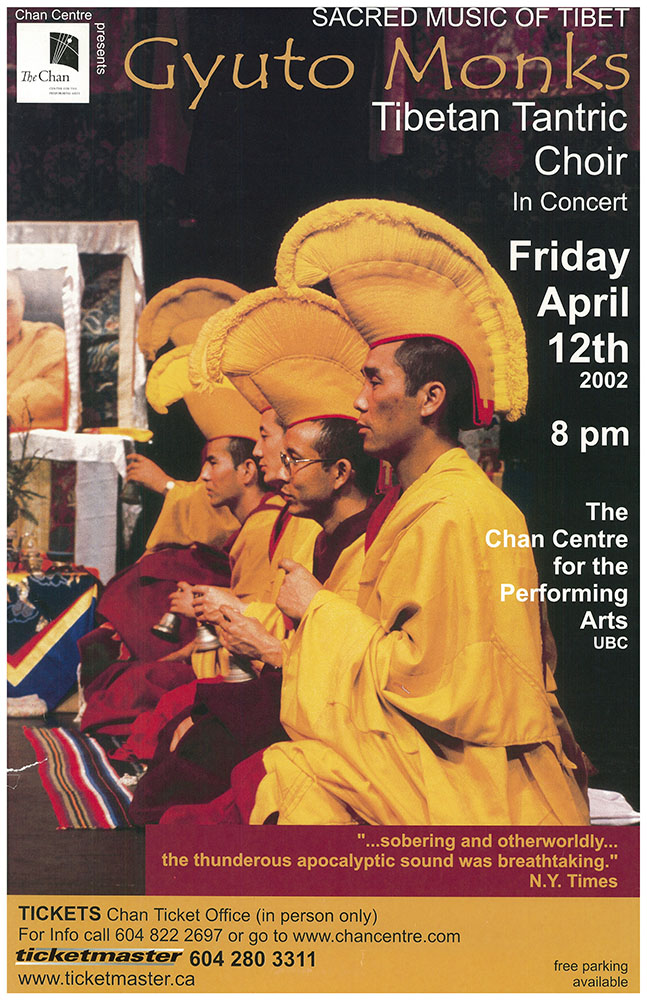
A memento from the Gyuto Monks' visit to UBC and their Concert (poster credit: Chan Centre)

Prof. Vina Nadjibulla at the Indo-Pacific Symposium 2025

Prof. Juliet Lu moderating discussion during the panel on "Reflecting on Indo-Pacific Canadian implications", 2025
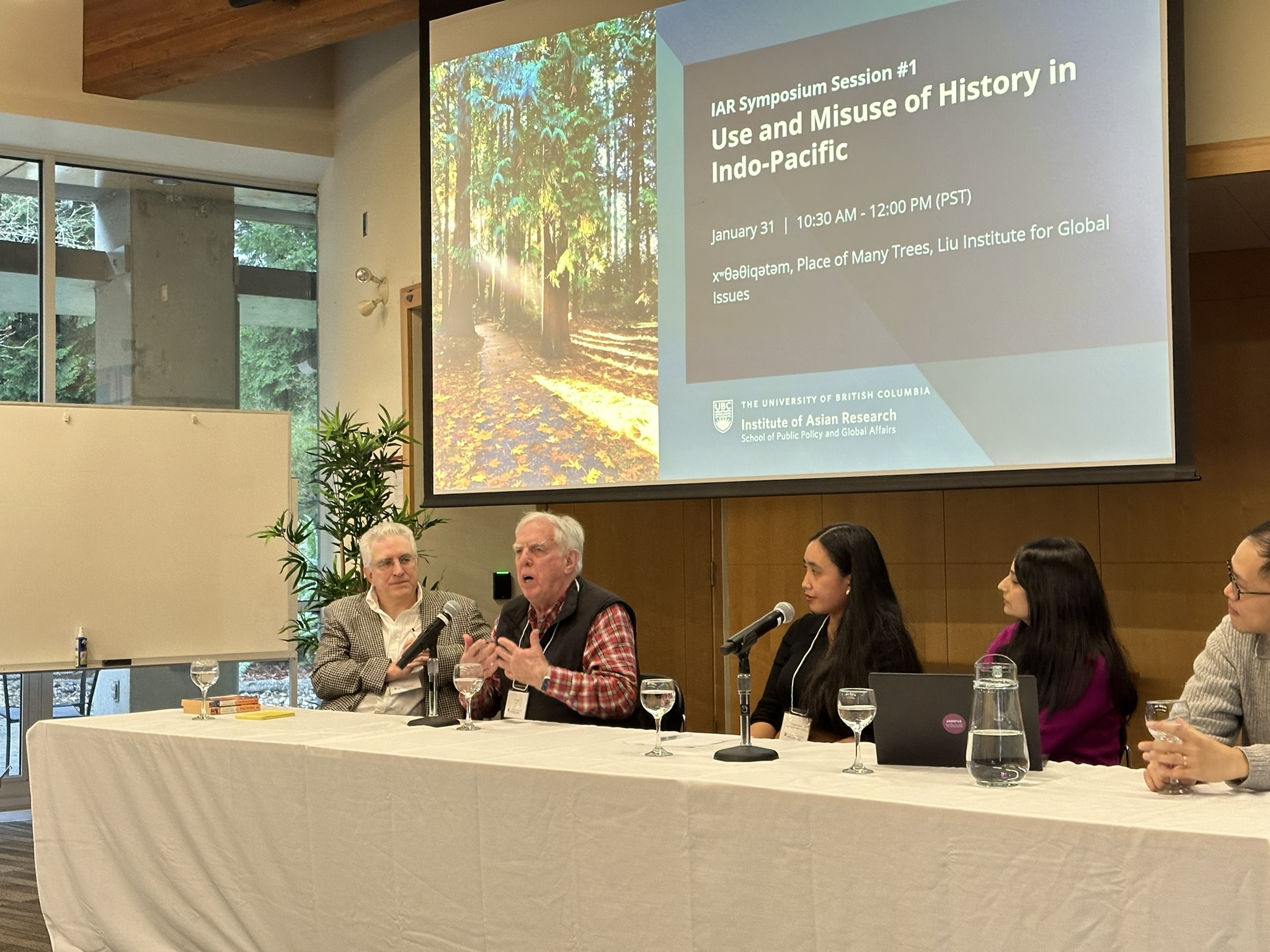
(L to R): Prof. John Roosa, Prof. Don Baker, Phoebe Ferrer, Maha Siddiqui, and Prof. Yin Shofu
IAR Directors
Terry McGee 1978-1992, 1995-1998
Pitman Potter 1999-2008
Paul Evans 2009-2012
Yves Tiberghien 2012-2017
Timothy Cheek 2017-2021
Kai Ostwald 2021-Present